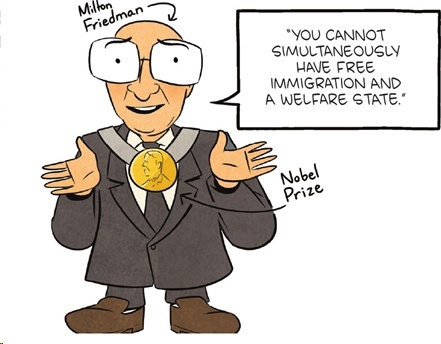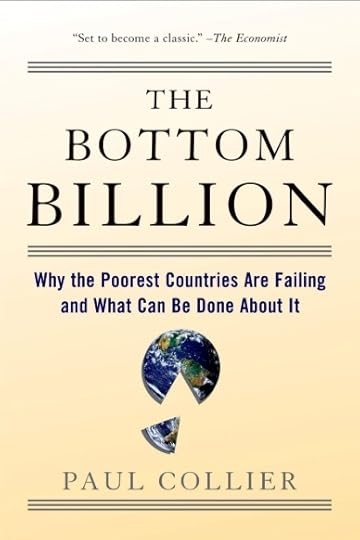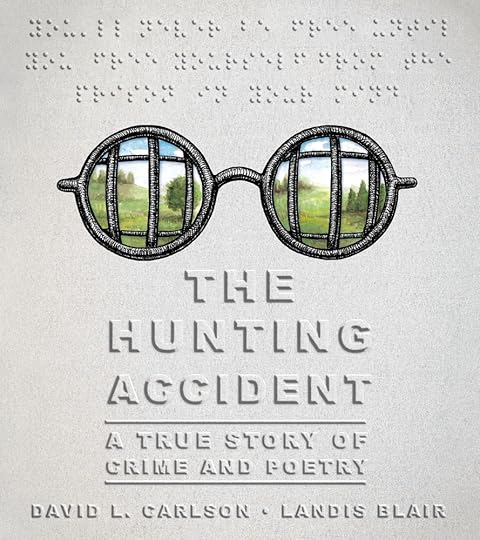Bryan Caplan's Blog, page 49
June 18, 2019
Martial Negligence in Game of Thrones and Beyond
I’ve previously argued that George R.R. Martin’s Song of Ice and Fire is implicitly a great pacifist work. While rewatching season 2 with my younger son, I re-discovered a scene worthy of a pacifist ovation. While Talisa, the crucial pacifist character, appears only in the show, the following exchange sheds great light on the role of martial negligence in Martin’s fictional universe. For context, Robb Stark is the King in the North, Talisa is a battlefield medic, and they’re surrounded by...
June 12, 2019
Why the Prices Are So Damn High: Reply to Alex
Alex has already posted a reply to my critique of Why Are the Prices So Damn High? Here’s my point-by-point reply, with Alex in blockquotes.
In contrast, my friend Bryan Caplan is not happy. Bryan’s basic point is to argue, ‘look around at all the stupid ways in which the government prevents health care and education prices from falling. Of course, government is the explanation for higher prices.’ In point of fact, I agree with many of Bryan’s points. Bryan says, for example, that immigrati...
In Sync: How Business Responds to Gratis Government
Whenever people criticize government provision of a product, clever analysts often demur that private suppliers who compete with government have exactly the same problems. Part of Helland and Tabarrok‘s case for the Baumol effect in education, for example, is that prices have risen at the same rate in both the public and private sectors:
Prices are much lower at public than at private institutions. The vertical scale is a ratio scale, so equal slopes mean equal rates of growth. Thus, althoug...
June 10, 2019
Why the Prices Are So Damn High: A Deeper Look
Out of my colleagues in Carow Hall, I’ve learned the most from Tyler Cowen, and I reason the most like Robin Hanson. But I agree the most with Alex Tabarrok. I was surprised, then, to find so much to disagree with in Alex’s new monograph (co-authored with Eric Helland), entitled Why Are the Prices So Damn High? Helland and Tabarrok try to explain why prices in labor-intensive industries – most notably education and health care – have increased so much more rapidly than inflation. They con...
June 6, 2019
The Backwards Induction of Aging
If you’re lucky, you’ll be old one day. Your mental faculties will deteriorate, especially your memory and your ability to adapt to new conditions. Your personality, however, is likely to stay about the same. Which raises a serious question: What will life be like for someone who has (a) poor memory, (b) low flexibility, and (c) your personality?
Before sorrow overwhelms you, remember: You’ll probably have younger people around to help you. Which raises a more specific question: How will...
June 5, 2019
Socialism vs. Capitalism: My Debate with John Marsh
Here’s the video for my Socialism vs. Capitalism debate with John Marsh. (Not to be confused with my earlier debate on the same topic with Elizabeth Bruenig). Marsh is an English professor at Penn State, but I’d say his knowledge of social science favorably compares to most tenured professors in the social sciences. (And he’s fun to talk literature with as well!) Here‘s an earlier exchange the two of us had on education and poverty.
Overall, I consider this one of the best debates I’ve b...
June 4, 2019
The Universal Basic Income: Newly Contentious

The Universal Basic Income (UBI) was the topic of my other “Contentious Issues in Classical Liberalism” presentation. Here, at least, I can see the superficial appeal for the typical member of the Mont Pelerin Society. Unlike the conventional welfare state, the UBI doesn’t try to micro-manage human behavior. It doesn’t claim to know how anyone – no matter how poor – should live their lives. It gives bureaucrats near-zero discretion. And it preserves recipients’ marginal incentives to wo...
June 3, 2019
Why is Immigration a “Contentious Issue in Classical Liberalism”?
 “Contentious Issues in Classical Liberalism” was the theme of this year’s Mont Pelerin Society. This gave me a chance to explore a major puzzle: Sociologically, immigration clearly deserves to be on the agenda. After all, many people otherwise sympathetic to human freedom and free markets support even more immigration restrictions than we already have. Intellectually, however, it’s hard to see why.
“Contentious Issues in Classical Liberalism” was the theme of this year’s Mont Pelerin Society. This gave me a chance to explore a major puzzle: Sociologically, immigration clearly deserves to be on the agenda. After all, many people otherwise sympathetic to human freedom and free markets support even more immigration restrictions than we already have. Intellectually, however, it’s hard to see why.
The plot thickens when you notice that pro-freedom immigration skeptics routinely use argume...
May 29, 2019
War for Poverty

When a country is mired in poverty, violent revolution is the most emotionally appealing remedy. So cinematic. Since the powers that be almost never agree, any call for violent revolution is, in practice, a call for civil war. But how well does the “remedy” of civil war actually work? So far, the very best treatment I’ve found is contained within Paul Collier’s The Bottom Billion:
Civil war is development in reverse. It damages both the country itself and its neighbors. Let’s start wit...
May 27, 2019
Caricature vs. Clarence Darrow

David Carlson’s The Hunting Accident provides a gripping take on the infamous Leopold-Loeb case. In 1924, two students at the University of Chicago abducted and murdered a 14-year-old boy for kicks. They were caught, but Loeb’s rich family hired the nation’s most famous lawyer, Clarence Darrow, to defend him.* Darrow opted for a bench trial, and delivered a now-legendary multi-day speech that convinced the trial judge not to execute the sadistic duo.
When I actually read Darrow’s statemen...
Bryan Caplan's Blog
- Bryan Caplan's profile
- 374 followers



